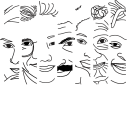HIV home testing can offer peace of mind by providing privacy and convenience, according to a new campaign by the Multicultural HIV and Hepatitis Service (MHAHS) to support October’s Mental Health month in NSW.

The campaign is urging more people to check their HIV status.
The test, which can be ordered online (https://www.hivtest.health.nsw.gov.au/), is free and avoid the need to visit a clinic in person.
Research shows that people living with HIV have poorer mental health outcomes than the general community. Addressing stigma or discrimination associated with HIV is a key to improving their mental health, as is getting timely and appropriate medical care.
About 12 per cent of people with HIV in Australia do not know they have the virus. About 30 per cent of new diagnoses among people from culturally diverse backgrounds were diagnosed late - meaning treatment may be less effective and the disease can be spread unwittingly. Testing for HIV increases the chance of getting treatment early and improving the outcomes for a person’s health.
And though HIV rates are falling overall, experts warn it is still a growing problem in certain communities.
The Director of Sydney Local Health District Sexual Health Service, Associate Professor Catherine O'Connor, says:
"The overall incidence of HIV has continued to decline in recent years, yet it hasn’t shown a similar decline in people from diverse cultural backgrounds. It is important that we encourage people from diverse cultural backgrounds to seriously consider testing, especially as they are now able to order a home testing kit free online.”
The kit involves a taking a few droplets of blood from a finger that are sent to the laboratory to be analysed. Three to five days later, people are contacted with results.
Barbara Luisi, Manager of the MHAHS, said:
“Currently, most HIV testing takes place through doctors or sexual health clinics".
"By offering testing outside of these settings, we are offering people more choices to get tested and be diagnosed earlier, thus reducing avoidable infections and illnesses.
“HIV home-testing opens the door for many more people to know their HIV status and find out how to get treatment and access prevention services on time,” she said.
Kits contain a dry blood test, which provides users with a small needle to prick their finger and a card on which to return their sample to the service.
HIV Home Tests process - how do I proceed?
• Order the HIV test kit online at www.hivtest.health.nsw.gov.au
• You will receive the kit by post in a confidential envelope, with everything you need to do the test.
• Take a few drops of blood from your finger: 5 drops is all you need.
• Send the blood sample back by mail (you don’t have to pay postage).
• You will get the results within a week by email, text message or phone call. It’s your choice.
For media interviews, please contact Sonam Paljor on 02-95151234 www.mhahs.org.au










